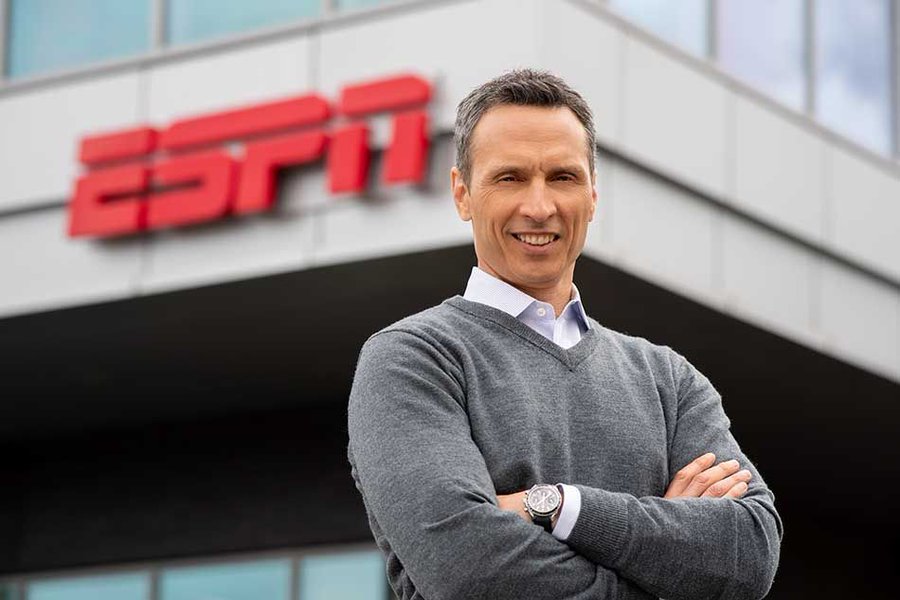ESPN chairman Jimmy Pitaro (Image credit: Joe Faraoni/ESPN Images)
By
Source: www.nexttv.com, July 2023
Move to bring the leagues in as strategic partners comes as ESPN’s linear revenue growth has officially and finally come to a stop
The Walt Disney Co. and its ESPN unit have recently held high-level discussions with the NFL, NBA and Major League Baseball about bringing the leagues in as actual stakeholders as ESPN moves to a direct-to-consumer streaming model.
The news came late last week via an exclusive report from CNBC, which had just hosted Disney CEO Bob Iger on Squawk Box. The report was confirmed over the weekend by The New York Times and several other outlets.
For the quarter ending March 31, revenue growth for Disney’s linear TV networks finally and officially came to a stop. And in May, ESPN chairman Jimmy Pitaro confirmed what everyone in the television industry had long assumed — it isn’t a matter of if ESPN would go DTC, but when.
Last week, while appearing on Squawk Box, Iger indicated that Disney was “looking for strategic partners” that could help ESPN with either distribution or content.
That quest appears to be underway, with Disney and ESPN talking to their biggest content licensing partners about a new way of proceeding that might not present as much risk for the media company.
As CNBC noted, selling minority stakes to the leagues might be a way to mitigate massive multibillion-dollar national rights licensing costs for ESPN. This would allow Disney to better compete with Amazon, Apple and Google, who are aggressively courting rights to live sports.
Disney, which said in an SEC filing late in 2022 that it has lost more than 10 million ESPN subscribers to cord-cutting over the past two years, expects to spend $45 billion on sports rights licensing over the next five years.
Disney’s national TV rights deal with the NBA is set to expire in June 2025. Given Disney will be migrating ESPN to a distribution model with significantly leaner margins than what was traditionally seen in linear, it might make sense to offer such a league partner an equity stake rather than come up with a raise on the current bill of $2.5 billion a season.
“We have great relationships with Major League Baseball and the National Hockey League and various college conferences, and of course the NFL and the NBA,” Iger told CNBC last week. “It’s not just about the live sports coverage of those leagues, those teams, it’s also about all of the shoulder programming it throws off on ESPN and what you can do with it in a streaming world.”

